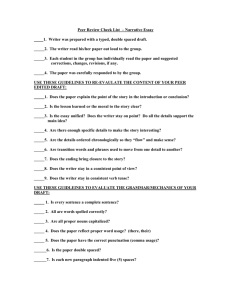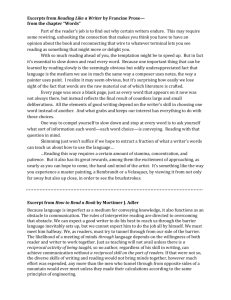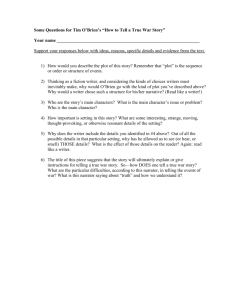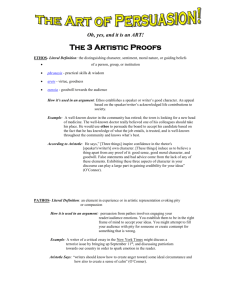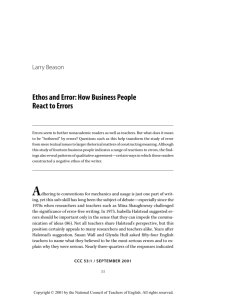ETHOS: What it is it? If the audience doesn't trust a speaker or writer
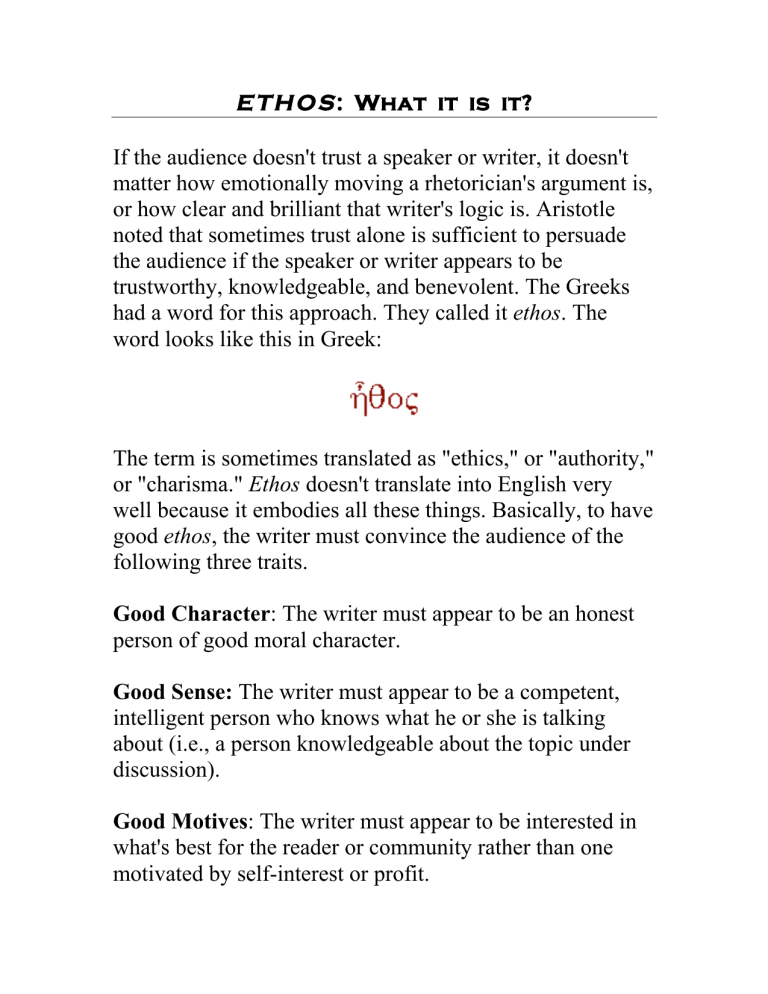
E T H O S : What it is it?
If the audience doesn't trust a speaker or writer, it doesn't matter how emotionally moving a rhetorician's argument is, or how clear and brilliant that writer's logic is. Aristotle noted that sometimes trust alone is sufficient to persuade the audience if the speaker or writer appears to be trustworthy, knowledgeable, and benevolent. The Greeks had a word for this approach. They called it ethos . The word looks like this in Greek:
The term is sometimes translated as "ethics," or "authority," or "charisma." Ethos doesn't translate into English very well because it embodies all these things. Basically, to have good ethos , the writer must convince the audience of the following three traits.
Good Character : The writer must appear to be an honest person of good moral character.
Good Sense: The writer must appear to be a competent, intelligent person who knows what he or she is talking about (i.e., a person knowledgeable about the topic under discussion).
Good Motives : The writer must appear to be interested in what's best for the reader or community rather than one motivated by self-interest or profit.



